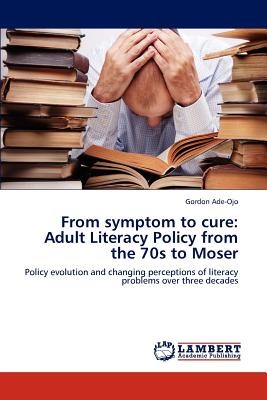
- We will send in 10–14 business days.
- Author: Gordon Ade-Ojo
- Publisher: LAP Lambert Academic Publishing
- ISBN-10: 3846504327
- ISBN-13: 9783846504321
- Format: 15.2 x 22.9 x 1.7 cm, minkšti viršeliai
- Language: English
- SAVE -10% with code: EXTRA
Reviews
Description
This book traces the evolution of adult literacy policy in the UK between the 1970s and the advent of the Moser Committee. It argues that policy in this area is often shaped by the perceptions that policy makers hold of literacy problems and as such, policy has over this period evolved from a perception of literacy problems as a symptom through a perception of literacy problems as the cause of other social problems to a perception of literacy itself as a cure for many social problems. The book provides a unique perspective as the analysis draws copiously from a series of interviews with practitioners and policy makers over the period. In this respect, some insight is shed into the thinking of some of the people who were particularly important in the policy formation process. The author as a researcher takes sides in the debates and never really shies away from staking claims on the different sides of the debate on perceptions of literacy.
EXTRA 10 % discount with code: EXTRA
The promotion ends in 21d.19:16:24
The discount code is valid when purchasing from 10 €. Discounts do not stack.
- Author: Gordon Ade-Ojo
- Publisher: LAP Lambert Academic Publishing
- ISBN-10: 3846504327
- ISBN-13: 9783846504321
- Format: 15.2 x 22.9 x 1.7 cm, minkšti viršeliai
- Language: English English
This book traces the evolution of adult literacy policy in the UK between the 1970s and the advent of the Moser Committee. It argues that policy in this area is often shaped by the perceptions that policy makers hold of literacy problems and as such, policy has over this period evolved from a perception of literacy problems as a symptom through a perception of literacy problems as the cause of other social problems to a perception of literacy itself as a cure for many social problems. The book provides a unique perspective as the analysis draws copiously from a series of interviews with practitioners and policy makers over the period. In this respect, some insight is shed into the thinking of some of the people who were particularly important in the policy formation process. The author as a researcher takes sides in the debates and never really shies away from staking claims on the different sides of the debate on perceptions of literacy.


Reviews